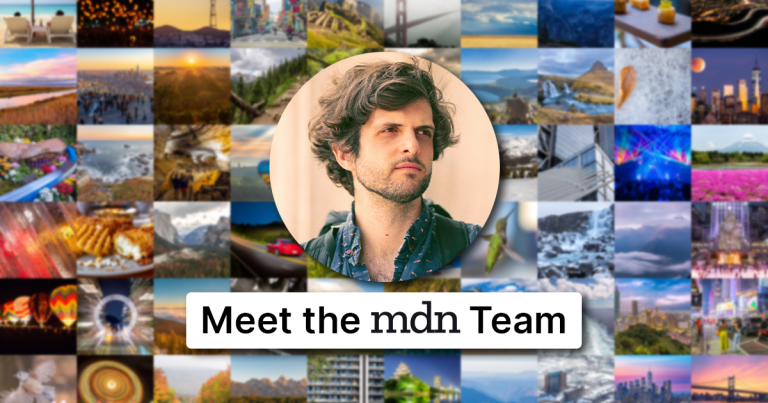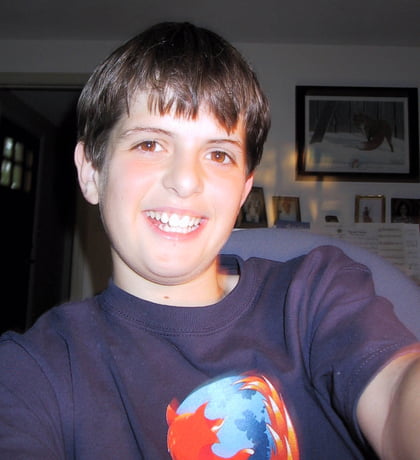I excitedly joined the Mozilla Developer Network content team three weeks ago. I originally wrote this post for the MDN blog. I then learned that the post didn’t match the content guidelines for the blog, so I’m reproducing the full text of my draft post here.
As I progress through life and learn about what’s meaningful to me, I’ve grown to understand the importance of feeling seen. To that end, I’m grateful to have the opportunity to introduce myself on the MDN blog, a platform that exists alongside some of the best technical documentation on the Internet.
Hello! 👋 My name is Zach (he/they/🏳️🌈), and the publishing of this post marks my third week as a member of the MDN Content Team. I’m so glad we’re here.
Vulnerability 🧡 Web Tech
In the mid-2000s, I was writing custom HTML to add GIFs of pink glitter and emo music to my MySpace profile. I had my mom fax a signed form to the Neopets office, giving me permission to chat on the coveted Neopets forums. I experimented with <marquee> and <blink> tags on free Web hosts like GeoCities and Angelfire, exploring a new frontier of technology. I expressed myself with the young language of Web 1.0, hoping to be seen.
Over the past 20 years, the language of the Internet has grown in ways that no individual can ever fully understand. We now have words to describe:
- Real-time multiplayer virtual environments (“metaverse”)
- Computer programs that ingest petabytes of data and spit out brand-new content (“generative AI”)
- Uncontrollably binging content that is poor for your mental health (“doomscrolling”)
Despite massive advancements in hardware and software, access to that technology for one of its key, underlying use cases – human connection and strong community building – remains far too limited. Some folks have figured out how to host game nights via Discord, have effective therapy via Zoom, and meet local friends through an app. Far too many people give up on the apps because their souls don’t feel nourished. Our souls deserve to be nourished!
In 2023, a small handful of social media megacorporations dominate the Web, proving our desire as social creatures to share our lives with other humans. Many of us express intimate parts of ourselves on these corporations’ platforms. This happens despite our conscious knowledge that these platforms exist to sell our vulnerability and attention for profit.
Here’s some optimistic magic, though: These platforms are built using a language that’s readily accessible to you and me. You’re reading this blog post on a website that exists to teach you how to read and write in this language. The websites that you write in this language can be deployed on computers that you control and can be accessed by people you choose. Gosh, that’s exciting. 😍
I feel strongly that personal websites are important extensions of our identities. That’s a big reason why I work so hard on my photography website, which purposefully feels like a public diary. It’s also why encourage everyone with the time and interest to build a personal website. It doesn’t have to be complex – it just has to be yours.
One of my life’s missions is to help people connect with themselves and their communities with authenticity, honesty, and vulnerability. The modern Web – with all of its expressiveness and accessibility – is a perfect vehicle for facilitating such connection.
There’s no singular “right path”
Ten years ago, I was over halfway through my Northeastern University education, studying Electrical and Computer Engineering. I was on that path partly because I enjoyed those topics, and partly because I felt like I was supposed to be there. I used to be a huge nerd. I still am, but I used to be, too. Computer nerds go to school to work on computers and then write software for good money, right?
University classes and co-ops set me up for some definition of success. Throughout my professional career, I’ve worked on drivers for mobile graphics hardware, firmware for fitness trackers, and various open-source metaverse software packages. I wouldn’t be where I am today without the quality time I spent at those organizations with those people; each of my full-time employment experiences were critical to my personal and professional growth for so many reasons.
In late 2021, with the critical support of my partner, I quit working as a full-time programmer to focus on my photography. While I wasn’t able to turn art into a self-sustaining career (yet), I credit this period of passion to teaching me more about myself and the world in which I exist than any job ever could. It was during this period where I started learning about my value as a human being. I am far more than 40 hours per week, and so are you.
This past summer, I started a contract position with Mozilla on the Hubs team. As someone who has worked extensively with WebRTC, Web tech, and metaverse, this position suited me. Over the past couple of months, I produced technical documentation for the Hubs team and its community. When an opportunity presented itself for me to switch to writing technical documentation for MDN, I took it. Here I am!
Mozilla is a fantastic organization, one that understands the importance of a free and open Web, and one that takes care of its people. I am lucky to be here.
Zach @ MDN
I’m glad to be using my technical skills to help improve MDN, which is a resource I’ve referenced countless times over the past 15 years. Thirteen-year-old me, wearing his “GetFirefox.com” t-shirt and holding a Firefox distribution CD, is freaking out right now. Here’s a selfie of that boy:
I hope to be a positive force in our large and vibrant community. I want to celebrate our humanity and squish bugs.
If you see me responding to one of your issues or pull requests, make a comment with the secret emoji combo “🔥🦊🧡”. Then, I’ll know that you read this post, and we’ll both be part of an exclusive club. 😎
Outside of GitHub, you can also contact me on Discord @ZachAtMozilla via the MDN Discord server. See you in open-source land!
Love,
Zach

